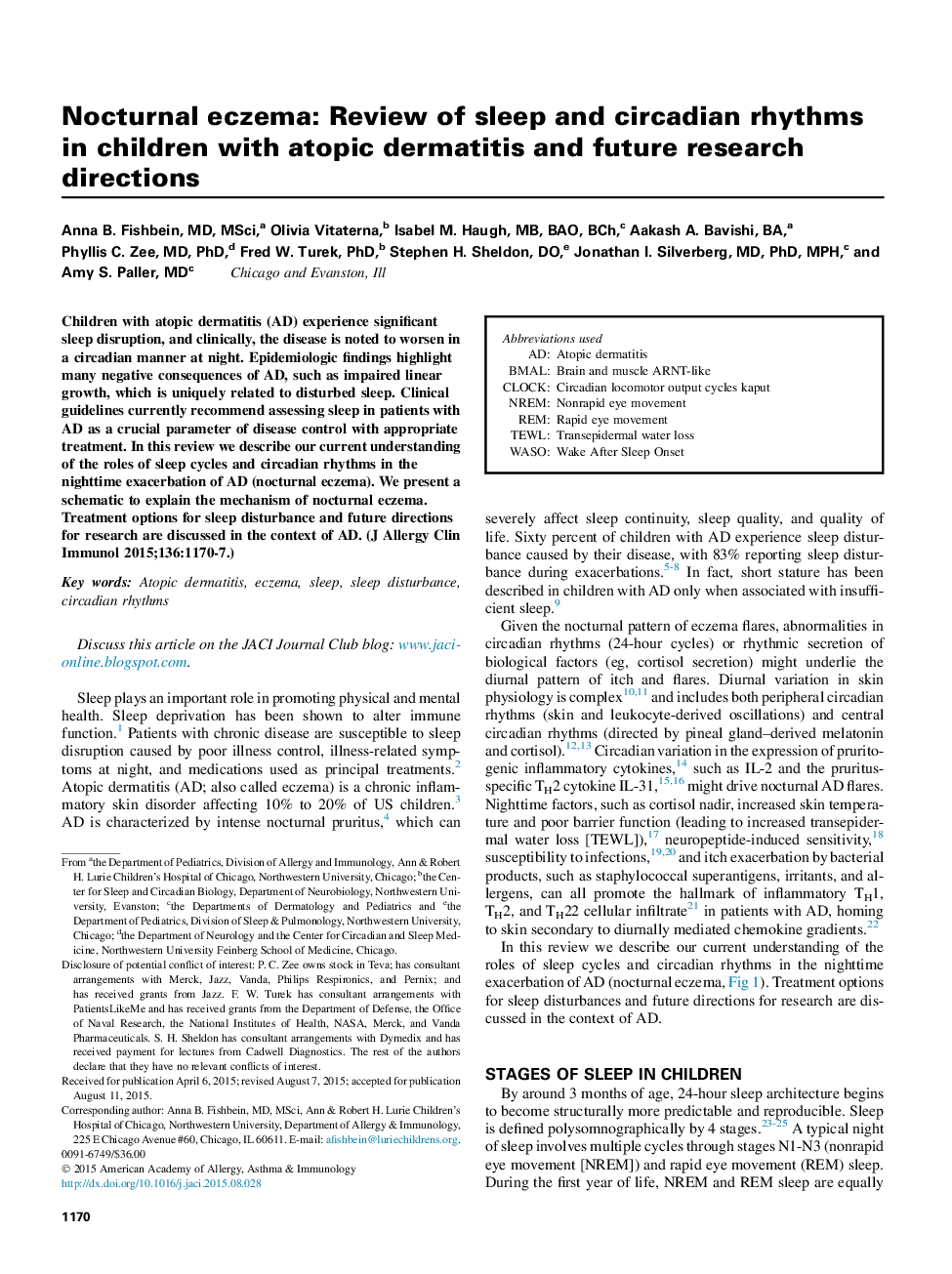| Article ID | Journal | Published Year | Pages | File Type |
|---|---|---|---|---|
| 6063214 | Journal of Allergy and Clinical Immunology | 2015 | 8 Pages |
Children with atopic dermatitis (AD) experience significant sleep disruption, and clinically, the disease is noted to worsen in a circadian manner at night. Epidemiologic findings highlight many negative consequences of AD, such as impaired linear growth, which is uniquely related to disturbed sleep. Clinical guidelines currently recommend assessing sleep in patients with AD as a crucial parameter of disease control with appropriate treatment. In this review we describe our current understanding of the roles of sleep cycles and circadian rhythms in the nighttime exacerbation of AD (nocturnal eczema). We present a schematic to explain the mechanism of nocturnal eczema. Treatment options for sleep disturbance and future directions for research are discussed in the context of AD.
